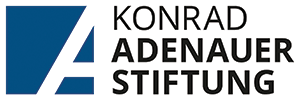The Konrad Adenauer Foundation is a German political foundation that has been present with an office in Belgrade since 2001 and implements projects in Serbia and Montenegro, with a focus on promoting democracy, political stability and economic prosperity
It is crucial for Europe that we improve the connection between our cities, peoples and countries. Only an interconnected Europe can handle the combined pressures of international market competition, climate change and threats to European security. One important way forward to a more connected Europe is to invest in the continent’s railway systems.
Why is the railway system so important for the EU? How do railways contribute to the Green Deal and the Green Agenda?
The EU has set an ambitious goal for itself, to reduce emissions in transportation by 90% by 2050. Transportation accounts for as much as 25% of total greenhouse emissions in the EU, so it’s no wonder that the EU has zeroed in on transportation to further reduce emissions. Furthermore, the transportation sector has seen the smallest levels of emission reductions compared to other sectors of the economy, such as manufacturing.

It should be noted that 74% of all transportation emissions come from road vehicles and, to be more precise, 45% comes from cars and 29.4% from trucks. Having all of this in mind, it is no wonder that the European Parliament declared 2021 the European Year of Rail and that the EU and its member states started investing heavily in renewing and improving the European railway network. Rail transportation in the EU today contributes to 0.5% of all gas emissions, while carrying 7% of all passengers and 11% of goods. Provided they are reconstructed and renewed, railways – as a safe, fast and energy-efficient mode of transport – will provide a fast-track to a Green European Future.
The Konrad Adenauer Foundation has published a study on the state of the railways in the Western Balkans. What motivated you to organise this research and what are the key findings?
The study “Next Stop: Europe! Railways in the Western Balkans” is our contribution to the Green Agenda for the Western Balkans. Furthermore, no such comprehensive study previously existed and we felt it was necessary to undertake this task. The study covers all of the Western Balkan states and provides an analysis of the state of their rail networks. Unfortunately, railways across the region are underdeveloped and the region has shifted to road transportation over the last three decades. Serbia has by far the largest railway network, encompassing 3,819 km of railways, while all other Western Balkan countries combined have just 2,737 km. However, up to 90% of the tracks in Serbia are single-track, with the average speed for 50% of tracks standing at 60 kph. In short, railways are underdeveloped, underused and understaffed.
Thankfully, the governments of the region have initiated an ambitious campaign of investments into the renewal of railway networks. The EU has given its full support to this campaign. There were 12 railway projects among the 39 projects funded within the scope of the Connectivity Agenda during the 2015-2019 period, for which the EU provided 358.9 million euros in grants out of total Connectivity Agenda funding of 880 million euros. The average grant to total project cost ratio is around 46.5% for railway projects and around 28% for connectivity projects in general. We can thus expect the railways of the Western Balkans, and particularly Serbia, will become the backbone of passenger and cargo transportation within a decade. This is particularly important given the fact that Serbia, and Europe as a whole, face a rapid decline in the number of professional truck and bus drivers, with the shortage of professional drivers in the EU reaching 400,000.
This CorD special edition is called “Green Serbia”. Given your previous work, can we expect new publications in the future?
I’m glad that you asked. The Konrad Adenauer offices in the region are working on a new study “Blue Connectivity: Inland and Maritime Waterways in the Balkans”. This is a working title and the research is in its very early stages. We will keep you informed as the study progresses.